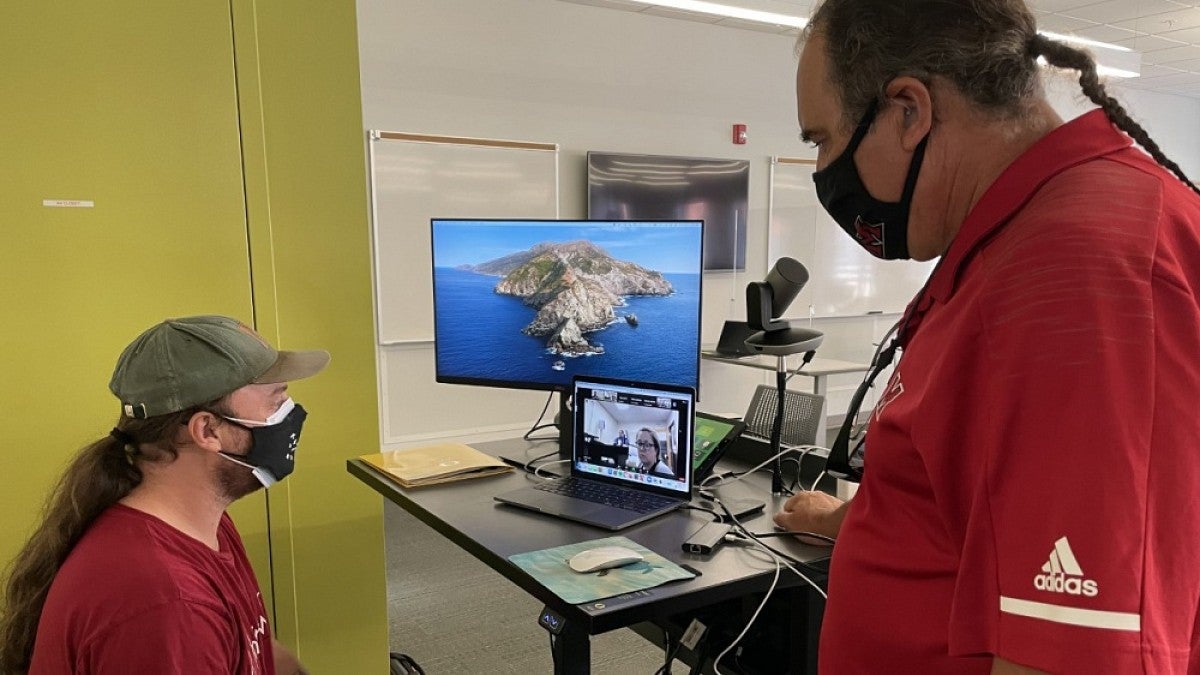The Northwest Indian Language Institute and the University of Oregon recently hosted the 2021 National Breath of Life Archival Institute for Indigenous Languages workshop in partnership with the Myaamia Center at Miami University of Ohio.
The workshop provides training in the use and management of archival materials for the revitalization of languages that have gone on for a time without speakers. This year’s workshop ran Aug. 9-13 in a hybrid format.
“The National Breath of Life follows the efforts, initiatives and innovation of numerous Native language revitalization practitioners at the Miami Tribe of Oklahoma’s Myaamia Center and the members of numerous Native American communities along the Pacific coast,” said UO linguistics professor Gabriela Pérez Báez, co-director of the National Breath of Life Archival Institute alongside Daryl Baldwin, executive director of the Myaamia Center at Miami University.
The event is the second of two advanced-training workshops focused on the organization and processing of archival language data using archival software known as the Indigenous Languages Digital Archive. The software was developed by the Myaamia Center and is being shared with Native communities through the workshops.
“We came to work with our materials using software developed by other Native people whose hearts are in the right place,” members of the Pit River language research team wrote in a follow-up survey. “We feel we can trust National Breath of Life, and having the chance to meet the software developers was a great opportunity.”
Breath of Life hosted 23 Native American community researchers working on 10 different languages. They were joined on campus by six additional community researchers who are working on Mutsun, Ohlone, Shawnee and Pit River languages, in partnership with Miami University.
“NILI at the UO has been very excited partnering with the Myaamia Center on this project over the past several years,” said Robert Elliot, interim director of the Northwest Indian Language Institute. “With the hybrid delivery for both in-person and online participants, we are actually able to enhance the learning experience and bring a valuable workshop to an even wider and more dispersed audience of people working on restoring their languages.”
Since 2011, the National Breath of Life has provided training on the use of archival documentation for the humanities. This year’s workshop was funded primarily by a National Endowment for the Humanities digital humanities advancement grant awarded to Baldwin and Pérez Báez.
“The commitment of community members to language revitalization is simply astounding,” Pérez Báez said. “Revitalizationists will brave anything in order to move their work forward, including arduous language data processing, the long process of learning and teaching their language, and the demands on their patience and motivation throughout what is a lifelong endeavor.”
—By Victoria Sanchez, College of Arts and Sciences


